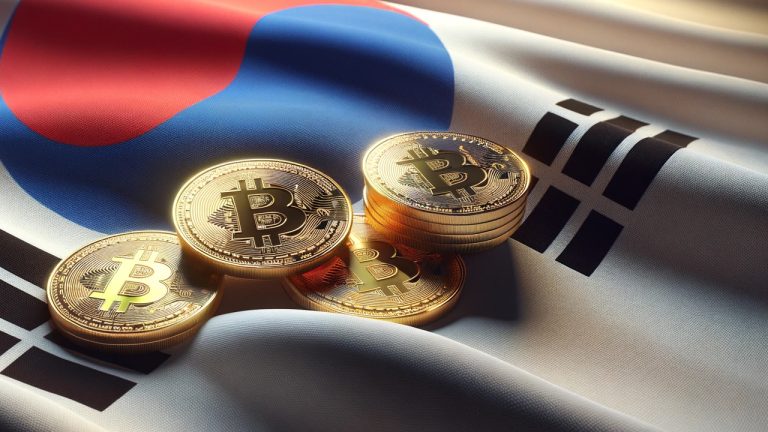South Korea’s Crypto Premiums Roar Back, Bitcoin Trades Nearly $1,300 Above Global Average

Recent data reveals the crypto economy has experienced notable growth over the past month, with a substantial portion of its trading activity originating from South Korea. As an illustration, on Saturday, November 18, 2023, the Korean won accounted for 3.53% of all bitcoin (BTC) trades in the previous 24 hours.
Bitcoin Price Soars $1,300 Above Global Norm in South Korea
Cryptocompare.com’s data indicates that, on Saturday, bitcoin (BTC) trades involving the Korean won constituted 3.53% of the total. Ethereum (ETH) trades paired with the won represented about 1.65%, and a significant 8.78% of solana (SOL) trades were also conducted with the won.
South Korea’s trading volumes have emerged as a significant force, with Upbit alone processing $2.62 billion in trades in the last 24 hours, making it the 11th largest crypto exchange by volume this weekend. Dogecoin trades with the Korean won comprised 3.06%, while the won also made up 19.77% of avalanche trades on Saturday.
South Korea’s major exchanges, particularly Upbit and Bithumb, are experiencing noticeable price premiums. At 1:50 p.m. Eastern Time on Saturday, bitcoin’s trading price on Upbit was $37,985 per unit, compared to the global average of $36,700, indicating a nearly $1,300 premium in South Korea. Bithumb’s BTC rates are similarly elevated, with bitcoin priced at $37,978 per coin.
Ethereum’s global rate stands at $1,966, but on Upbit and Bithumb, it’s trading higher at $2,031 and $2,032, respectively. Bithumb ranks as the 15th largest exchange by volume, having handled over $1 billion in trades over the past 24 hours. The trend continues on Coinone, where bitcoin is trading at $38K per unit, and ether is valued at $2,034 per unit, surpassing the global average of $1,966.
Although most other cryptocurrencies on these platforms align closely with global averages, solana’s price is roughly $2 higher. The high trading volumes and premiums in South Korea underscore the robust demand for cryptocurrencies in the region. Moreover, these pricing discrepancies likely present significant arbitrage opportunities for astute traders.
What do you think about the premiums in South Korea right now? Share your thoughts and opinions about this subject in the comments section below.

